Let’s Make Only One Original Onigawara in the World!
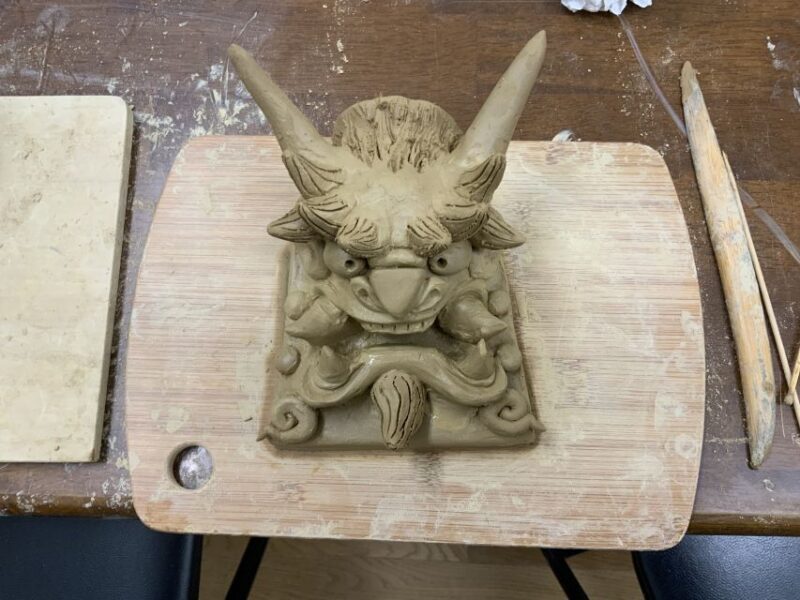
This hands-on experience in Kyoto costs $94 per person and lasts about 3 hours. It takes place at Kawarakoubouyouya, where you’ll learn how to craft a traditional Onigawara, the iconic demon-faced roof tile that has guarded Japanese roofs for over 1400 years. The activity involves molding your own tile from soil, which is then kiln-fired and mailed to your home a couple of months later.
What we love about this experience is how accessible it is—no prior sculpting skills are needed—and how you’ll genuinely connect with a piece of Japanese culture that’s both historic and protective. Plus, the chance to create a one-of-a-kind tile that will eventually turn a traditional silver color makes it uniquely yours.
One potential consideration is the slightly tricky Google Maps location, which some reviews mention. Also, since you’re working with soil, a bit of dirt on your clothes is unavoidable.
This experience suits travelers curious about Japanese traditions, history buffs, or those who want a meaningful souvenir beyond typical tourist trinkets. Families, groups of friends, and solo travelers alike find it rewarding and fun.
You can check availability for your dates here:Key Points
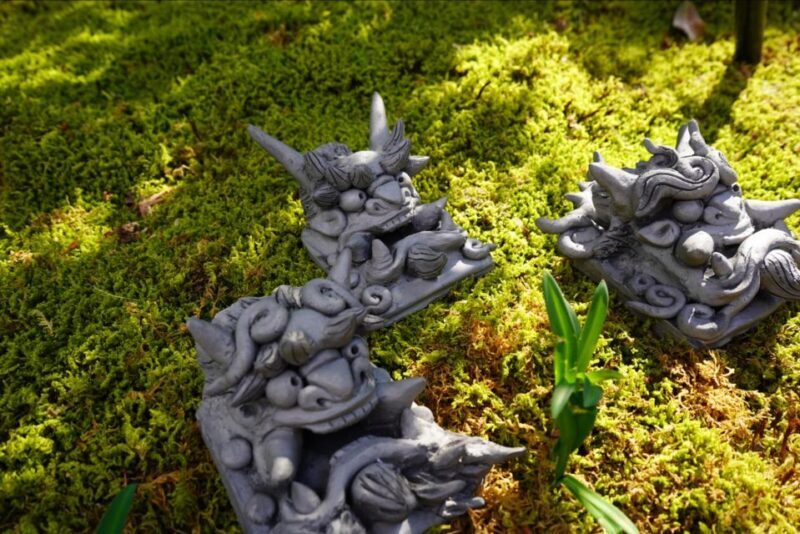
- Authentic craftsmanship: Create your own Onigawara tile, a symbol of protection in Japan.
- Educational and cultural: Learn about the history of roof tiles and their role in Japanese architecture.
- Inclusive for all skill levels: Designed so anyone, even children or those with clumsy hands, can participate.
- Memorable keepsake: Your custom tile will be kiln-fired and shipped home, serving as a lasting memory.
- Friendly guides: Teachers are praised for patience, kindness, and sharing insights into the tradition.
- Convenient reservation: Book now, pay later, and cancel easily if plans change.
Planning more time in Kyoto? We've covered other experiences worth considering.
An In-Depth Look at the Experience
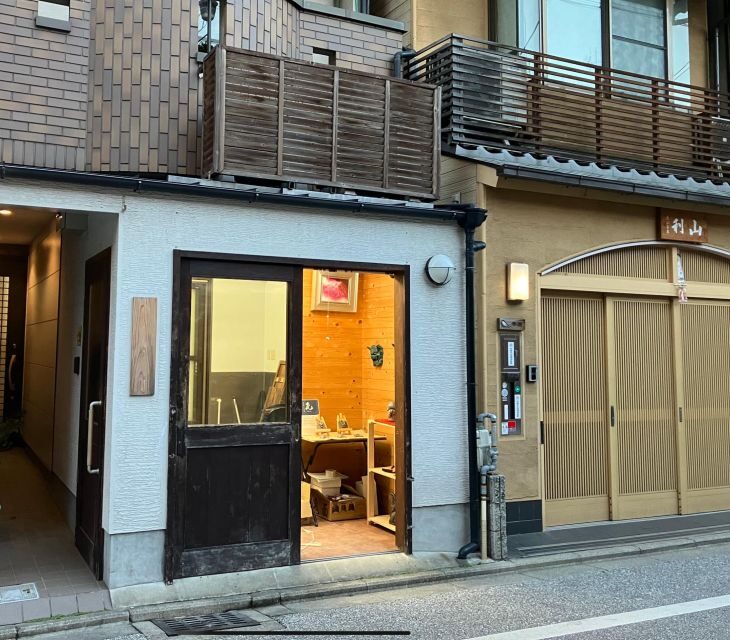
Location and Logistics
The activity begins at KAWARAKOUBOUYOUYA, a shop that can be searched easily on Google Maps. Although some reviews mention a GPS misdirection, most found the location after a short walk. The meeting point is straightforward, and the guide will welcome you warmly. You’ll start with a brief explanation about Kawara (Japanese roof tiles) and their significance, setting the stage for what’s to come.
The entire session lasts around 3 hours, making it a manageable half-day activity, especially when paired with sightseeing in Kyoto. The group size tends to be small, often just you and one or two others, allowing plenty of time for individual attention and questions.
Making Your Onigawara
The core part of the experience involves shaping a small Onigawara tile from soil. The instructor, Yuya, or another guide, will teach you the traditional techniques but also emphasize that no prior experience is necessary. As Alexa mentions, “Our teacher was really good and very patient,” which makes the process stress-free.
You’ll start by kneading and molding the soil into the shape of a demon face—an iconic design that traditionally protects buildings from evil spirits. The process is surprisingly straightforward because the guide has developed a method that simplifies what’s usually a challenging craft. Children and beginners alike find they can produce a respectable and charming tile.
More Great Tours NearbyThe Cultural Significance
Making your own Onigawara isn’t just about the craft; it’s about connecting to a tradition that’s protected homes for centuries. You’ll hear about the symbolism of the demon face—fearless faces meant to ward off evil—and how these tiles have been a staple of Japanese architecture since ancient times.
Most reviews, like Daniel’s, highlight how the instructor’s warmth and knowledge made the experience special. “The environment was just friendly and inspiring,” he recalls, emphasizing how much the social aspect enhances the cultural value.
- 2-Hour Shopping Tour Plan / private
- 6-Day Private Tour to Kyoto via Fukui from Fukuoka with Bus
- 2 Types of Japanese Sweets making and Tea Ceremony
- Kyoto: Insider Sake Brewery Tour with Sake and Food Pairing
- 4.5-hr Kyoto Historical Highlights Bike Tour with UNESCO
- 4-Day Scenic Japan Tour by Car: Tokyo Mt. Fuji Kyoto & Osaka
The Firing and Shipping Process
After shaping your tile, it will be fired in a kiln at the workshop. This part of the process—firing and glazing—brings out the traditional silver color that many associate with Onigawara tiles. The finished product will be shipped to your home 1-2 months later, with shipping costs paid separately on the day.
Alexa’s review highlights how her “tile will protect her home,” adding a fun, personal touch to this meaningful souvenir. Since the firing process is handled on-site, you leave with a sense of pride in having helped create a unique piece of Japanese craftsmanship.
The Value and Overall Experience
At $94, the price reflects the handcrafted nature, expert guidance, and memorable cultural experience. It’s a fair investment considering you’re actively participating in a tradition that’s been part of Japan’s architecture for centuries. The joy of creating something with your own hands, combined with the chance to learn and ask questions, adds lots of value.
We appreciated how flexible the booking process is—reserving now with the option to pay later, and canceling up to 24 hours in advance for a full refund. This makes it easier for travelers balancing a packed Kyoto itinerary.
Who Will Love This Experience?
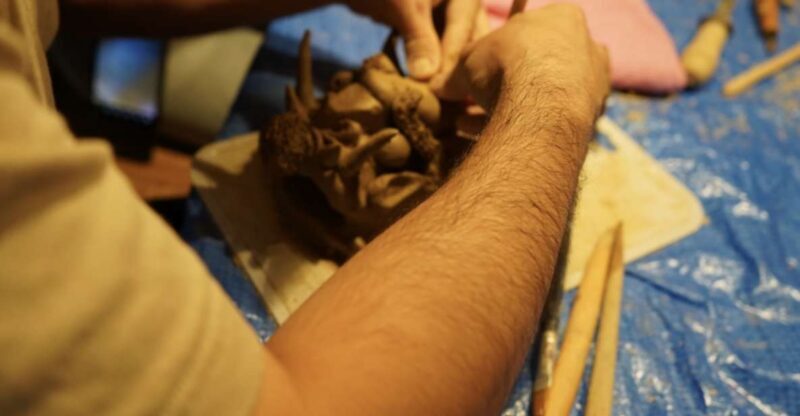
This tour is perfect for those wanting a hands-on cultural activity that’s both educational and fun. It appeals especially to families or groups who want a creative break from sightseeing, or solo travelers seeking a meaningful souvenir.
If you’re interested in Japanese architecture, tradition, or crafts, you’ll find this experience a rewarding way to connect more deeply with Kyoto’s heritage. Plus, the friendly guides and inclusive approach make it suitable for all ages and abilities.
Final Thoughts
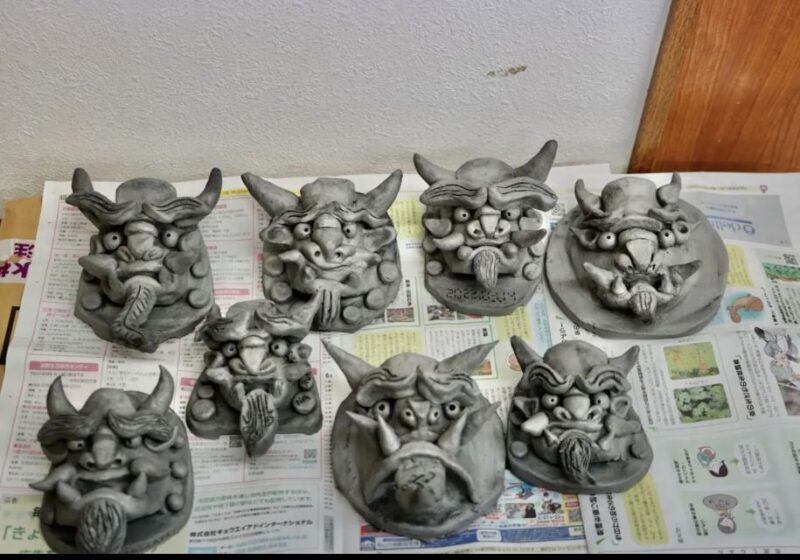
Creating your own Onigawara tile in Kyoto offers a rare opportunity to make a tangible connection with Japanese craftsmanship and protection symbols. It’s a memorable activity that combines history, artistry, and a bit of dirt—what more could you ask for?
The small group size, expert guidance, and the chance to produce a personal, meaningful artifact make this experience a standout for anyone wanting to go beyond typical sightseeing. If you’re curious about Japanese culture or simply looking for a fun, creative way to spend a few hours, this workshop is a great choice.
The fact that your tile will be kiln-fired and shipped home later means you get a lasting reminder of Kyoto that’s crafted with care. It’s particularly suited for travelers seeking authentic experiences that respect tradition while offering a bit of personal achievement.
FAQ
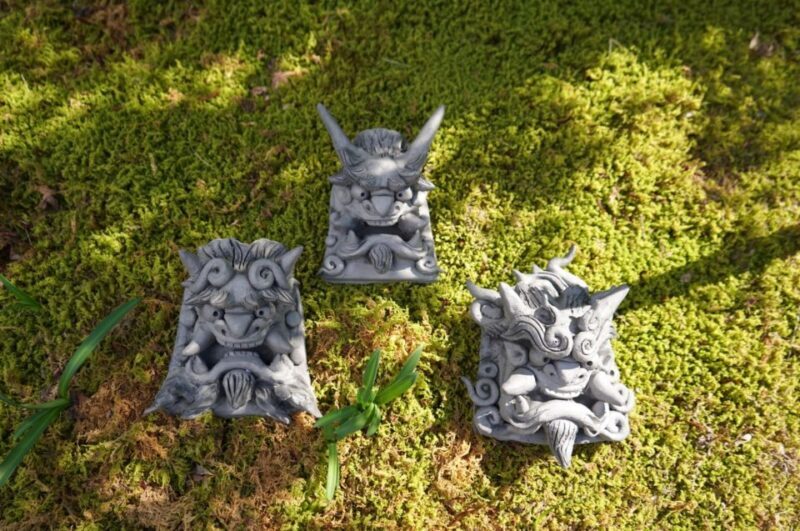
How long does the workshop last?
It typically lasts about 3 hours, enough time to learn, mold, and start your tile before it’s fired.
Do I need any experience to participate?
Not at all. The guides have developed a simple process so everyone can make a meaningful onigawara, regardless of skill level.
What should I wear?
Since soil is involved, wear clothes that can get dirty—it’s part of the fun.
How is the tile shipped?
After firing, the tile is shipped to your home, with shipping costs paid separately on the day.
Can children join?
Yes, the experience is suitable for all ages, and reviews note that children particularly enjoyed it.
Is there any language barrier?
The experience is available in both English and Japanese, and guides are used to helping international visitors.
What is included in the price?
The workshop fee is included; the firing and shipping are extra.
Can I cancel my reservation?
Yes, with full refund if canceled at least 24 hours in advance.
Is the location easy to find?
Most find it easily, but some reviews mention checking Google Maps carefully due to location quirks.
What makes this experience special?
Creating a protective symbol with your own hands, learning about Japanese architecture, and taking home a unique ceramic piece.
This hands-on Onigawara workshop in Kyoto offers a genuine taste of Japan’s craft traditions, along with a fun, creative escape from busy sightseeing. Whether you’re a history buff, craft enthusiast, or simply craving a memorable activity, this experience will leave you with more than just a souvenir—it’s a story you helped create.
You can check availability for your dates here:More Tour Reviews in Kyoto
- Kyoto: Nishiki Market and Depachika Food Tour with a Local
- Kyoto: the Best E-bike Tours, Explore Kyoto like a local!
- Kyoto: Samurai Kimono Rental for 1 day to stroll around
- Kyoto: Making Sushi Art & Maki sushi class
- Kyoto: Tea Ceremony in 100-year-old Kyo-Machiya Townhouse
- Kyoto: Traditional Kimono Rental
More Kyoto experiences we've covered
- Kyoto: Nishiki Market and Depachika Food Tour with a Local
- Kyoto: the Best E-bike Tours, Explore Kyoto like a local!
- Kyoto: Samurai Kimono Rental for 1 day to stroll around
- Kyoto: Making Sushi Art & Maki sushi class
- Kyoto: Tea Ceremony in 100-year-old Kyo-Machiya Townhouse
- Kyoto: Traditional Kimono Rental
- Kyoto Early Morning Private Tour with Licensed Guide
- Kyoto: Private Customizable Day Tour with Guide and Vehicle
- Kyoto/Osaka/Nara Private Customized Tour with Guide
- Kyoto: Table-Style Tea Ceremony at a Kyo-Machiya
- Let’s make only one original onigawara in the world!!
- Kyoto: Yoga Class by Kamo river
